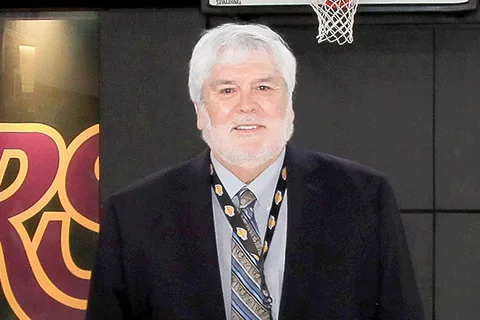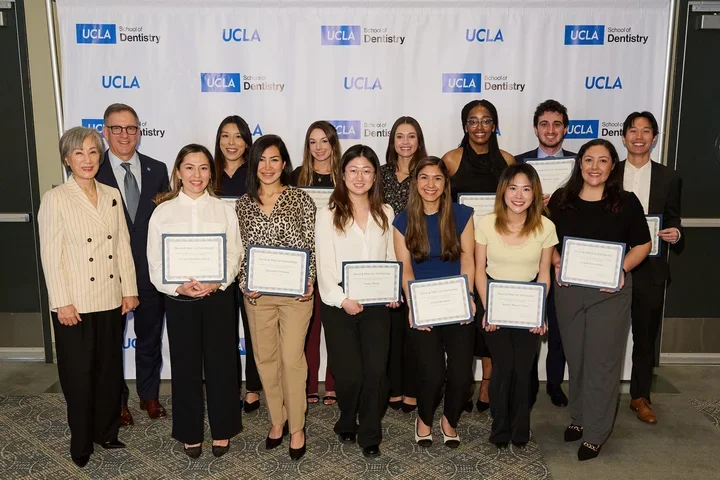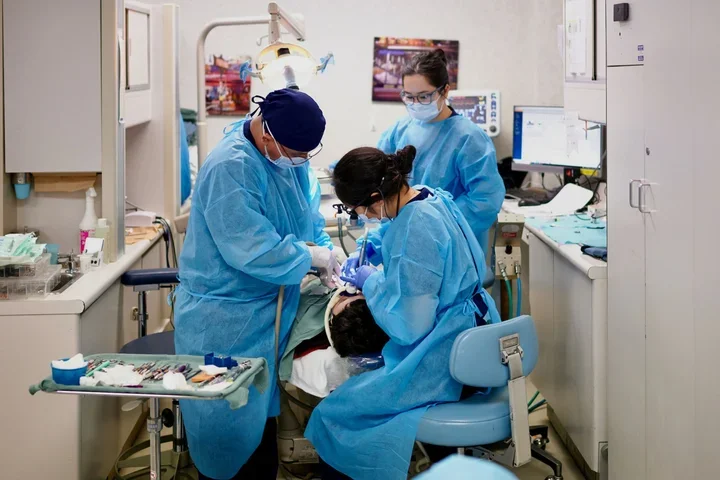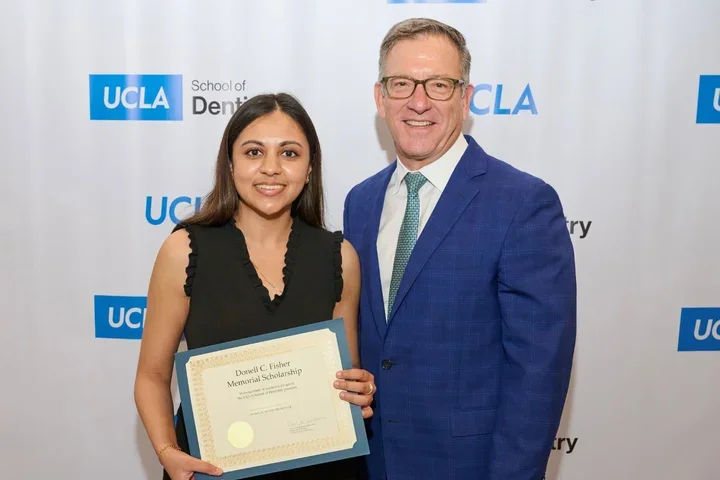Putting Guards in Place: Dr. Ray Padilla
Dr. Ray Padilla, a sports dentistry expert, volunteers with UCLA Athletics, the LA Lakers, and LA Galaxy, while teaching future dentists about dental trauma and prevention.

If you asked Dr. Ray Padilla what drives him to volunteer his time and clinical expertise year-after-year, game-after-game to one of the best collegiate sports enterprises in the country, UCLA Athletics, and two professional teams, the LA Lakers and the LA Galaxy, he would say it’s because he’s passionate about treating some of the best college and professional athletes in Los Angeles and being part of the exciting world of sports.
As one of only a handful of dentists in the country who focuses on sports dentistry, Dr. Padilla, who is a volunteer faculty member in the section of restorative dentistry, is among an even smaller group who teach it. He frequently speaks at dental conventions around the country on sports-related dental trauma and has authored numerous publications on the topic. To top off his impressive resume, he has built a successful general practice in the South Bay.
Dr. Padilla’s road to sports dentistry started over 30 years ago when he was asked to be on the dental services team for the 1984 Los Angeles Olympic Games. At the time, Dr. Padilla was just hitting his stride in private practice, but those Olympic Games would change his life forever. They ignited a passion of working with and treating elite athletes for dental trauma.
“I fell in love with sports dentistry after the ’84 Olympics. The excitement of being part of competitive sports is indescribable,” said Padilla. “We would treat athletes from around the world— many for basic oral hygiene, because they didn’t have adequate access to proper dental care in their own countries. There would be a full hospital setting in the Olympic Village and we would clock more than 2,000 dental visits for the entirety of the games.”
Following the Olympics, Dr. Padilla was asked to be the dental director for soccer’s 1994 World Cup, which he followed up with servicing the ’99 and the ’03 World Cups. He also served on a committee that oversaw doping control for the 2014 World Hockey Championships as well as being a volunteer venue dentist for the 2015 Los Angeles Special Olympics.
All of these high profile appointments aside, Dr. Padilla’s most fulfilling role yet is his UCLA volunteer faculty position. In 1995, he was asked by Dr. Alan Felsenfeld to teach a course on dental trauma to young, aspiring dentists and residents. Notably, UCLA is one of the few dental schools that offers a course on dental trauma with an emphasis on sports injuries. In fact, the dental school is in the process of starting a sports dentistry club for their dental students with Dr. Padilla as their faculty advisor.
“Dental trauma, such as getting a tooth knocked out, can affect someone for the rest of their life. Implants may be needed and if left untreated, the tooth would discolor,” said Dr. Padilla. “It’s important for today’s dental educators to teach the correct protocol for treating serious injuries of the mouth.”
Dr. Padilla instills that same awareness of dental trauma in his patients and the players he treats. “A custom-fitted mouth guard is the best way of protecting one’s self from getting a tooth loosened or knocked out and doing serious damage. With my position with UCLA Athletics for the past 24 years, we make sure that athletes, across all sports, have the opportunity to wear custom-fitted mouth guards.”
Sports Dentistry, including the treatment and prevention of dental trauma, brings together all specialties of dentistry as well as orthopedic and primary care physicians who can recognize and treat head injuries. Like many health care professionals, Dr. Padilla relies heavily on the collaboration of his medical counterparts to provide the best possible care he can to the athletes.
“I tell my students who are interested in sports dentistry that they have to put in the time and gain more experience in trauma,” said Dr. Padilla. “Shadow a dentist that does this type of work, volunteer with a high school athletics department, and take continuing education courses. There are so many ways to expand your expertise of dental trauma and sports dentistry. And I promise you—you won’t regret your decision.”



